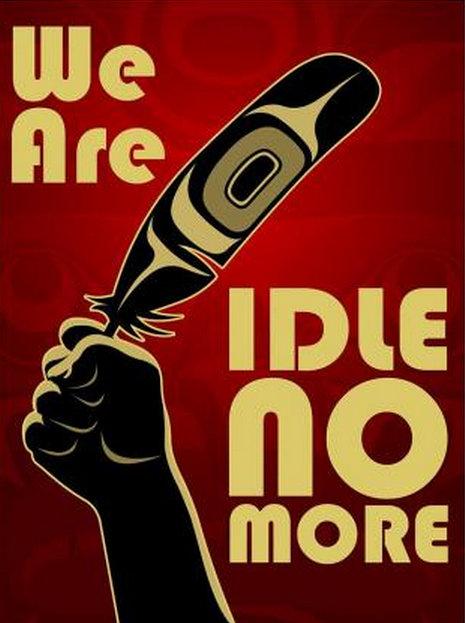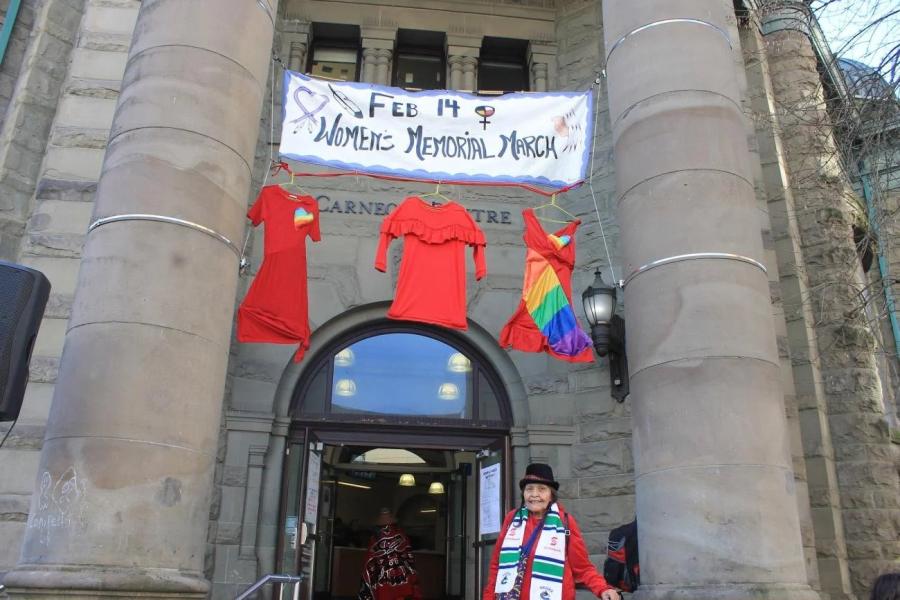
On December 11, 2012, northern Ontario Attawapiskat Chief Theresa Spence began a hunger strike after months of calls and letter-writing, to pressure the Prime Minister of Canada Stephen Harper and the Governor General David Johnston to “initiate immediate discussions and the development of action plans to address treaty issues with First Nations across Canada.”
Her protest is a call to action in support of the rights of First Nations Peoples and a demand that the Canadian government honor the treaty rights and Indigenous rights of First Nations.
Through her resistance she amplified the dialogue of the Idle No More movement. The movement began as a resistance against the impending Bill C-45 , a unilateral government move in Saskatchewan, the government’s omnibus budget implementation bill that includes changes to land management on Frist Nations’ lands, attacks the land base reserved for Indigenous Peoples and removes protection for hundreds of waterways and weakens Canada’s environmental laws, and is becoming a global movement that calls on Indigenous communities to peacefully stand up for their lands, rights, cultures, and sovereignty.
Canada endorsed the UN Declaration on the Rights of Indigenous Peoples on November 12, 2010, affirming its “commitment to continue working in partnership with Aboriginal peoples and in accordance with a relationship based on good faith, partnership and mutual respect.” Therefore it should take steps towards implementing its obligations to First Nation peoples in Canada. The Declaration states that Indigenous Peoples have the right to maintain their distinct identities and cultures as the foundation of their development, to pursue their own destinies under conditions of equality, and to have secure rights over lands and resources, with due regard for their traditional patterns of use and occupancy. Bill C-45 was drafted without the free, prior and informed consent of First Nation leadership, which is a violation of the duties laid out in the UN Declaration. Indigenous Peoples right to participation should not be ignored but brought to the table for effective participation in decision-making in matters that affect their livelihoods, resources, rights and sovereignty.
Cultural Survival echoes the UN Special Rapporteur on the rights of indigenous peoples James Anaya’s call to the Canadian Government to establish a meaningful dialogue with the country’s aboriginal leaders in light of recent events and “take full advantage of this opportunity to rebuild relationships in a true spirit of good faith and partnership.”
The Idle No More movement is calling for a global day of solidarity and activism on January 11, 2013, the day Prime Minister Harper has agreed to meet with First Nation leaders. Today, January 11, 2013, in support of First Nations Peoples we call upon the government of Canada to honor and implement Aboriginal Treaty rights of First Nations. To fail in this respect is to continue the history of colonialism through the most shameful practices of racism, imperialism, and renewed conquest. The ultimate wrongful act will be the denial of a people’s intricate relationship to their lands that sustains life, thus denying the right to life.
Suzanne Benally
(Navajo and Santa Clara Tewa)
Executive Director
Cultural Survival



